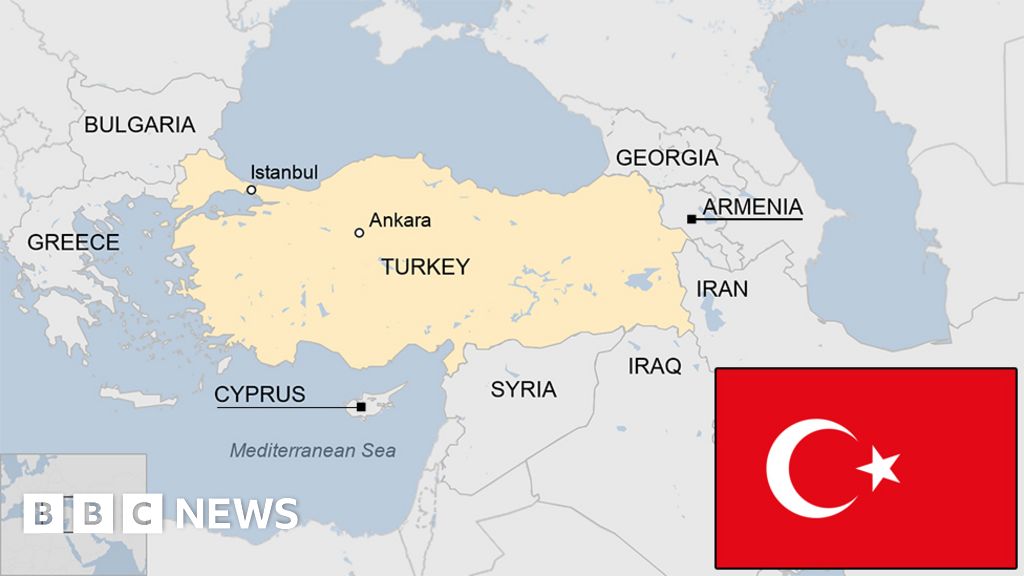Some key dates in Turkey’s history:
1453 – Sultan Mehmed II captures Constantinople, ending the Byzantine Empire and consolidating Ottoman Empire in Asia Minor and Balkans.
15th-16th Centuries – Ottoman Empire expands into Asia and Africa.
16th-17th Centuries – Ottoman Empire’s power and prestige peaks, particularly during the reign of Suleiman the Magnificent (1520-1566), who personally instituted major legislative changes relating to society, education, taxation and criminal law.
During this period, Ottoman forces are often at odds with the Holy Roman Empire in their advance towards Central Europe through the Balkans and the southern part of the Polish-Lithuanian Commonwealth.
1538, 1571, 1684 and 1717 – Ottoman navy battles for control of the Mediterranean Sea against several Holy Leagues, composed primarily of Habsburg Spain, Genoa, Venice, Knights of Malta, Papal States, Tuscany and Savoy.
1683-99 – Great Turkish War between the Ottomans and the Holy League: triggered by the Ottoman siege of Vienna in 1683 – which is defeated by a relieving army led by John Hunyadi of the Polish-Lithuanian Commonwealth.
16th-18th Centuries – Ottomans often at war with Safavid Persia. Ottoman wars with Persia continue as the Zand, Afsharid, and Qajar dynasties succeed the Safavids in Iran, until the first half of the 19th Century.
16th-20th Centuries – Russo-Turkish wars: a series of 12 wars fought between the Russian Empire and the Ottoman Empire. Except for the war of 1710-11 and the Crimean War 1853-56, these end in Ottoman defeats.
1750s onwards – Ottoman Empire begins to decline.
1839 – Tanzimat reforms aim to modernise the Ottoman state in line with progress made in Western Europe.
1876 – These reforms lead to the Ottoman constitutional movement, but the reforms fail to stop the dissolution of the empire.
1908 – Young Turk Revolution forces Sultan Abdul Hamid II to restore the 1876 Ottoman Constitution and recall parliament, which ushers in multi-party politics.
1912-1913 – First Balkan War: the loss of Rumelia, Ottoman territories in Europe, sees the arrival of millions of Muslim refugees in Istanbul and is a major shock to the state.
1913 – Ottoman coup d’état: Committee of Union and Progress (CUP) members make a surprise raid on central Ottoman government buildings and seizes power in the wake of defeat in the war.
Ottoman forces recover Edirne and surrounding areas in East Thrace during the Second Balkan War of 1913.
1914-1918 – Turkey effectively becomes a military dictatorship during World War One, where the Ottoman Empire fights in alliance with Germany and Austria-Hungary.
1915-1917 – Between 300,000 and 1.5 million Armenians are massacred or deported by the Ottoman government from their homeland in Anatolia to present-day Syria. Armenia and many historians consider the killings an act of genocide. Turkey says killings occurred on both sides and denies that those suffered by Armenians amount to genocide. The topic remains a highly sensitive issue.
1918-22 – Partition of defeated Ottoman Empire leads to eventual triumph of Turkish National Movement in war of independence against foreign occupation and the rule of the Sultan.
1923 – Turkey becomes a republic with war hero Mustafa Kemal as its president. He later adopts the title “Ataturk”, or leader of the Turks, and embarks on a modernisation project, including changes to civil laws and enshrining secularism in the constitution.
1939-45 – Turkey remains neutral for most of World War Two. It declares war on Germany and Japan in February 1945 but does not take part in fighting. Joins United Nations.
1950 – Turkey holds its first free elections, won by the opposition Democrat Party. Adnan Menderes becomes prime minister, taking steps to liberalise the economy and move the country in a pro-US direction early in the Cold War.
1952 – Turkey joins Nato.
1960 – Army coup against ruling Democratic Party.
1963 – Association agreement signed with European Economic Community (EEC), now the EU.
1974 – Turkish troops occupy northern Cyprus, partitioning the island.
1980 – Military coup follows political deadlock and civil unrest. Imposition of martial law.
1984 – Kurdistan Workers’ Party (PKK) launches separatists guerrilla campaign which develops into a major civil war that simmers on for decades.
1987 – Turkey applies for full EEC membership.
2002 – Islamist-rooted Justice and Development Party (AKP) wins landslide election victory. Party promises to stick to secular principles of constitution.
2003 – AKP leader Recep Tayyip Erdogan wins seat in parliament. Within days Abdullah Gul resigns as prime minister and Erdogan takes over.
2011 – Syrian civil war breaks out, resulting in tension along the countries’ border and a huge influx of refugees into Turkey.
2014 – Prime Minister Erdogan wins the first direct popular election for president.
2016 – Attempted coup fails. Authorities detain thousands of soldiers and judges on suspicion of involvement.
2017 – Referendum approves switch to presidential system.
2022 – UN agrees to request from Ankara to officially refer to country as Türkiye.
2023 – Erdogan wins another five-year term as president, while his ruling alliance wins a parliamentary majority.

